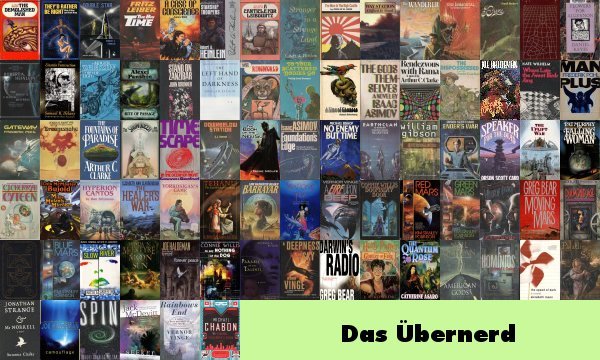 A Canticle for Leibowitz
A Canticle for Leibowitz by Walter M. Millar Jr.
1961 Hugo Winner for Best Novel
For bad science fiction writers the fall of the Soviet Union was reason for despair. Without a cold war there was no justification the post-nuclear war novels that had been pumped out for decades. There's only a handful of nuclear war novels that I consider worth reading and only three that I think are truly great: Alas, Babylon; On the Beach; and A Canticle for Leibowitz. Canticle was the only one of those to win the Hugo award due mainly, I suspect, to Walter Miller initially publishing part of it in The Magazine of Fantasy and Science Fiction several years before.
Canticle is formed of three linked novellas detailing life in abbey located in the southwestern United States following a nuclear war. Leibowitz was one of the men involved in the development of the weapons that scoured the earth and for penance he became a Catholic monk and formed an order dedicated to collecting and preserving knowledge. The first third of the novel presents a world still deep in a dark age and details efforts to have Leibowitz declared a saint. The middle section of the novel features a renaissance as knowledge is being recovered but the new thinkers do not like the idea that a religious order would have a storehouse of knowledge greater than any in the world. The final section deals with the threat of the cycle starting over once more with a new nuclear war looming but the church is taking greater steps for the preservation of knowledge and life.
There are things that link all three novels tightly. The history of the abbey grows as the novel progresses and events of the earlier pages are the distant legends of the later. The deeds of the characters are remember but not reasoning or detail so the timid monk who patiently works for decades on an illuminated manuscript is remembered a bold figure. There is a hermit who may be human mutated to immortality, Saint Leibowitz guiding his order over the centuries, the biblical Lazuras acting as the Wandering Jew, or just three similar characters who appears through all three novellas. The Wandering Jew explanation lends some strength to the third novella since he is charged with waiting until Christ returns and He only has a few days to get back before there is nothing left for him to return to. I didn't find the three novella structure to be a problem simply because of how well each novella built on the previous structure.
The theme of preservation runs throughout the entire book. The order works to preserve documents against decay, their way of life against a world that's changing, and life against absolute despair. Even the Catholic church tries to preserve itself despite the loss of Rome. This is different than simply survival that is the focus of most post-nuclear war novels. The survival requirements of the abbey are cared for and they are working to do something more than simply survive. The preservation efforts are necessary at first but as the book goes on it becomes more questionable. Saving the knowledge of the past is worth it, but is saving that hoard of knowledge against a society that has a reached a point where it can be used worth it? And what about a life that is doomed to a slow, painful death? Miller doesn't offer easy answers to the questions he raises but he does put the reader in a position to understand them.
Miller's book is a hopeful one. Civilization has been smashed but it's coming back step by step over the course of centuries. Even in the end with a more devestating war looming hope endures. Millar doesn't chronicle the destruction of our world and his characters don't spend their time mourning the ashes of it. It gives Canticle a very different tone from most other post-apocalyptic novels.
I also appreciated the depth of the Catholicism featured in the novel. The details of the medieval monastic life, the canonization process, and the requirements of baptism play central roles in the book. There's a general lack of quality religious science fiction (for certain obvious reasons) and the foundation of religion that Canticle is built on makes it stand out.
A Canticle for Leibowitz stands above the hundreds of nuclear war novels that found their way into science fiction for the forty years that the cold war raged for its depiction of a resurrection of humanity. While the fears that it grew out of are outdated (we're much more likely to see a limited exchange now than the planet wiping potential of the cold war superpowers) the themes make it well worth reading.
